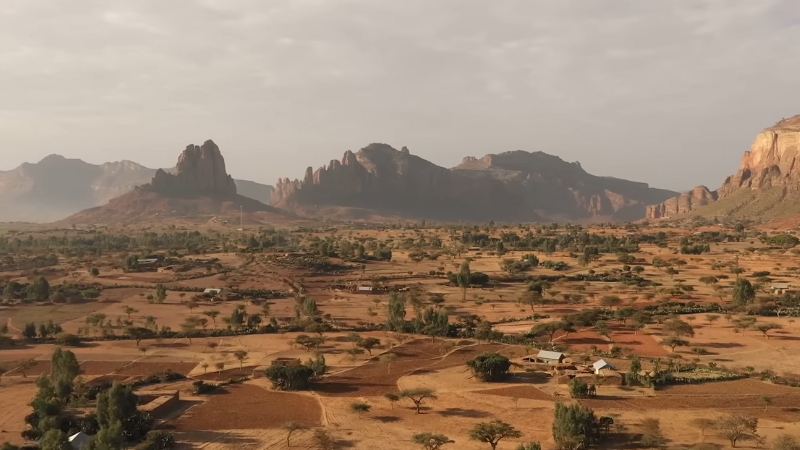Backpackers always chase the unknown, and Ethiopia is one of the last frontiers for real adventure. Ancient rock-hewn churches, bustling markets, tribal villages, and dramatic landscapes make it a dream destination. But is it safe? That’s the big question.
Ethiopia is not your average backpacking spot. Some places feel welcoming, others can be overwhelming, and a few demand serious caution.
Scams, pickpockets, and rough transport are part of the experience, but smart travelers can handle them. Long journeys, unpredictable food, and remote areas mean packing first aid supplies is a must.
This guide breaks down everything you need to know to stay safe while exploring one of the most fascinating countries in Africa.
1. Scams and Hustles
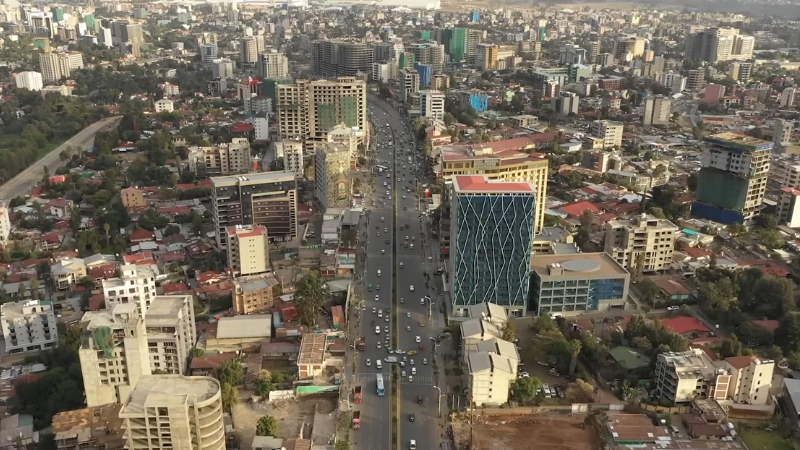
Backpackers stand out in Ethiopia, and scammers know it. Addis Ababa, Lalibela, and other tourist spots are full of people trying to squeeze extra cash out of foreigners. Some will be smooth talkers, others will be more aggressive.
Fake guides are everywhere, especially around historical sites. They offer to show you around for free, then demand an outrageous tip at the end.
Taxi drivers may refuse to use meters and try to charge three times the fair price. In markets, some vendors start with sky-high prices, hoping you won’t know how much things should cost.
Street beggars—especially kids—will ask for money, pens, or candy. Some truly need help, but many are part of organized groups. Giving out cash only encourages more aggressive begging.
How to Stay Safe
- Walk with confidence and act like you know where you’re going.
- Ignore anyone who seems too pushy—just keep moving.
- Ask hotel staff what things should cost before heading out.
- Always count your change after a purchase.
2. Pickpockets and Theft
View this post on Instagram
Theft is a real issue, especially in crowded areas. Markets, bus stations, and nightlife spots are prime hunting grounds for pickpockets. Merkato in Addis Ababa is one of the biggest open-air markets in Africa, but it’s also packed with thieves waiting for a distracted tourist.
Buses and minibusses are another hotspot. People press close together, making it easy for a quick grab. If someone bumps into you, check your pockets immediately. At night, walking alone in certain areas of Addis can be risky. Petty crime is common, and a quiet street with no one around is the last place you want to be.
Most crime isn’t violent, but losing your phone, wallet, or passport can ruin your trip.
How to Protect Your Belongings
- Keep your backpack in front of you in crowded areas.
- Use a money belt or hidden pouch for cash and passports.
- Hold onto your phone tight when taking photos.
- At night, take a taxi instead of walking alone.
3. Solo Travel: Is It Safe to Go Alone?
Traveling alone in Ethiopia is absolutely possible, but it’s not for first-time backpackers. The country is welcoming, but it can be overwhelming. You’ll get plenty of attention as a foreigner, and sometimes that can be exhausting.
The good news is that Ethiopia is safer than many African countries when it comes to violent crime. Most of the time, locals are just curious and want to chat. But moving around takes effort, and without some basic Amharic, communication can be tough.
Public transport is cheap, but it’s slow and unpredictable. Minibuses leave when full, not on a schedule. Long-distance buses leave early in the morning—usually around 4 AM—so get ready for some brutal wake-up calls.
Expect to hear “faranji! faranji!” all the time, which just means “foreigner.” It’s not meant to be rude, but it gets old fast.
Tips for Solo Travelers
- Stay in guesthouses to meet other travelers.
- Make local friends—they’ll help you navigate the culture.
- Learn basic Amharic phrases to make life easier.
- Consider joining a tour for places like Danakil or Omo Valley.
4. Transportation
Ethiopia is set to launch 100 electric buses for public transportation in Addis Ababa next month, as reported by the Ethiopian Press Agency. https://t.co/witXeH0AAc pic.twitter.com/8w70ZrCpZF
— Samuel Tamene🇪🇹 (@tamene_samuel) January 15, 2025
Getting around Ethiopia is an adventure. Roads are rough, buses are packed, and domestic flights are expensive unless you know how to book them right.
Minibuses are the cheapest option, but they cram in as many people as possible. Selam and Sky Bus are better for long-distance travel, but they sell out fast, so booking ahead is a must.
Tuk-tuks (called bajaj here) are great for short city rides, but drivers often overcharge tourists. Always negotiate before getting in.
If you’re taking a domestic flight, Ethiopian Airlines gives a big discount if you fly into the country with them. But the trick is to book your ticket inside Ethiopia—prices online are much higher.
Buses in Ethiopia are an experience. Most long-distance ones leave at 4 AM, meaning you’ll be waking up in the middle of the night to secure a spot. Roads can be rough, and breakdowns happen often. Drivers blast music the whole way, so bring earplugs if you want any peace.
How to Make Travel Easier
- Arrive early for buses—seats fill up fast.
- Carry small bills—drivers don’t always have change.
- Avoid night travel—bad roads and reckless drivers make it risky.
- If flying, book in person to save money.
5. Food and Water: What’s Safe to Eat?
@shegergebeta ሽሮ እና ፍርፍራቸውን መሞከር አለባችሁ 🤌 📌 Ado Kitchen 📍Bole, next to Berhane Adere Mall. ውል እና ማስረጃ ያለበት ህንፃ ስር or📍Lebu, behind Kaldis. . Fasting special combo:1170 12 beyananet:1100 . ✍️ ለማስታወስ ያህል: ፖስት ያረግነውን ሄዳችሁ ለመሞከር ካሰባችሁ.. ያያችሁት እንዲያቀርቡላችሁ እና ሰርቪስ እንዳይበላሽ በተቻለ አቅም ሰው በማይበዛበት ወይም ግርግር በማይሆን ሰዓት ብትሄዱ እንላለን:: . #shegergebeta #ሸገርገበታ #restaurantinaddis #restaurantinsheger #restaurantrecommendation ♬ original sound – ሸገር ገበታ
Ethiopian food is incredible, but it can also be rough on your stomach if you’re not careful. Injera, the sour, spongy flatbread, is served with nearly everything.
Some love it, others get sick of it fast. Spicy stews like Shiro wat (chickpea stew) and tibs (fried meat) are delicious but can be heavy on oil and unfamiliar spices.
Street food exists, but it’s not as common as in Southeast Asia. The biggest risk isn’t what you eat, but how clean the place is. Small roadside restaurants don’t always have the best hygiene, and that’s where travelers often run into trouble.
Tap water is not safe to drink. Even locals boil or filter their water first. Bottled water is cheap and easy to find, but double-check that the seal isn’t broken.
- Stick to busy restaurants—high turnover means fresher food.
- Watch where locals eat, not just where tourists go.
- Bring a water filter or purification tablets if you want to save money.
- Avoid raw vegetables unless you’re sure they’ve been washed with clean water.
If you do get sick, rehydration salts and basic meds can save you a miserable few days. Pharmacies are common, but they might not have what you need, so bring some first-aid essentials.
6. Local People
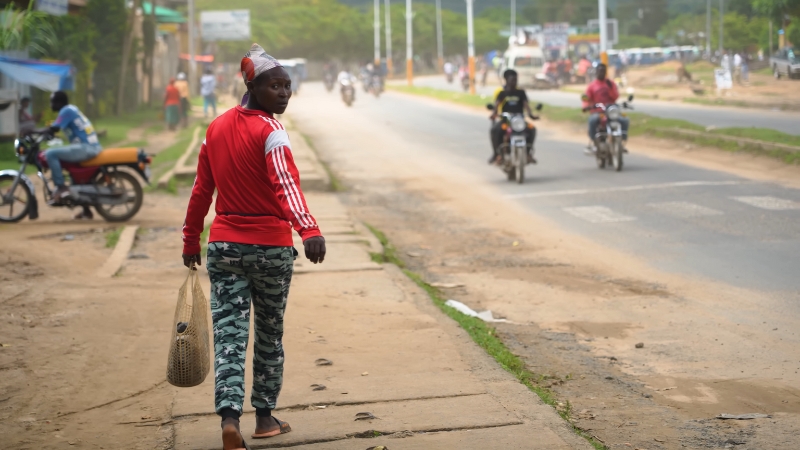
Ethiopians are some of the friendliest people you’ll meet, but as a backpacker, you’ll also attract the ones looking to make a quick buck. Expect a mix of genuine kindness and relentless hustling.
Many locals will go out of their way to help you, sometimes refusing a tip. Others will expect something in return. If someone offers help without being asked—like carrying your bag or guiding you somewhere—there’s a good chance they’ll ask for money after.
Taxi drivers, market vendors, and some “guides” will see you as a walking ATM. You’ll hear “faranji price” all the time, meaning whatever they charge you is much higher than what locals pay.
- Be polite but firm—don’t feel pressured to give money.
- If a deal sounds too good to be true, it probably is.
- Bargain for everything, especially taxis and souvenirs.
- If you feel uncomfortable, just walk away.
Once you figure out who’s genuinely friendly and who’s working an angle, you’ll enjoy Ethiopian hospitality a lot more.
7. Police and Authorities
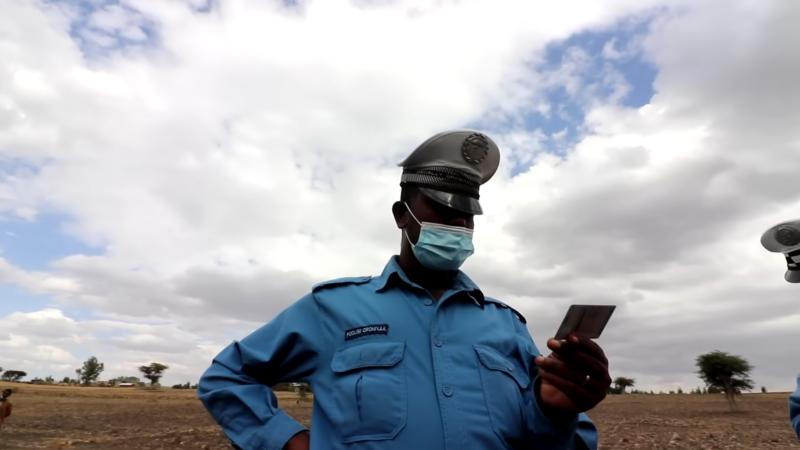
Police presence in Ethiopia is noticeable, especially in Addis Ababa. Most officers are there for security, not to target tourists, but interactions with them can be unpredictable.
Some travelers report random ID checks, though they’re usually quick. Carrying a copy of your passport is a good idea, so you don’t risk losing your real one.
In rural areas, police are often relaxed and might even be helpful. But in major cities, especially around protests or big events, they can be aggressive. Avoid political discussions and stay away from demonstrations—Ethiopian politics is complicated, and foreigners can get caught in situations they don’t understand.
Things to Keep in Mind
- If police stop you, stay calm and cooperate.
- Never take photos of government buildings or military sites—it’s illegal.
- If something goes wrong, contact your embassy, but don’t expect quick action.
Corruption isn’t as bad as in some other African countries, but bribes do happen. If you ever find yourself in trouble, some officers might “solve” the issue in exchange for a little cash.
8. Internet and Connectivity
Wi-Fi in Ethiopia is terrible. Even in big cities, hotel internet is painfully slow and unreliable. Outside Addis Ababa, forget about streaming or video calls—even sending a simple message can take forever.
The best way to stay connected is to get a local SIM card. Ethio Telecom is the only provider, and their 4G coverage is decent in cities but weak in rural areas. Data is cheap, but buying a SIM requires showing your passport and sometimes dealing with a lot of paperwork.
Best Tips for Staying Online
- Get a local SIM at the airport or an Ethio Telecom office.
- Use messaging apps like WhatsApp—calls are more reliable than regular phone lines.
- Expect random internet blackouts, especially during political unrest.
- If you need decent internet, head to higher-end hotels or coworking spaces.
9. Women Traveling Solo: What to Expect
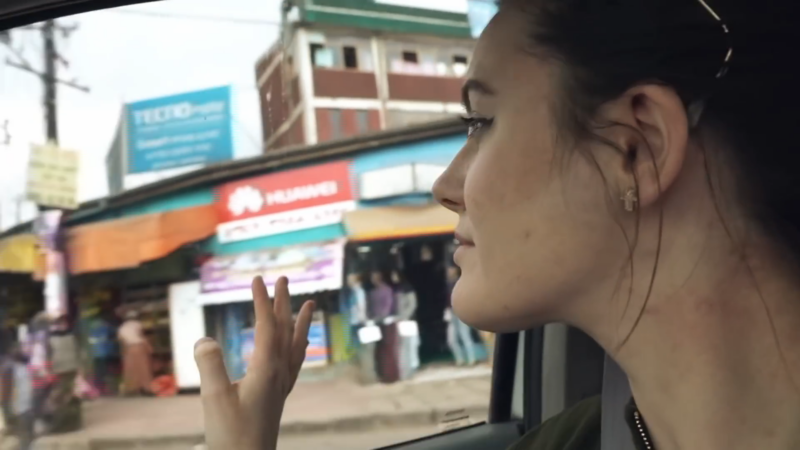
Ethiopia is safe for solo female travelers, but expect constant attention. Women alone get a mix of genuine curiosity, harmless flirting, and occasional unwanted advances. Most of it is verbal—catcalling, staring, and some guys asking if you’re married.
What Helps?
- Dressing modestly (covering knees and shoulders) reduces attention.
- Wearing a fake wedding ring can stop some of the “Are you married?” questions.
- Sunglasses help when you don’t feel like making eye contact.
- Confidence and a firm “no” work better than engaging in long explanations.
Ethiopian men can be persistent but aren’t aggressive. Harassment is way lower than in places like Egypt or India. Women who’ve traveled here solo say they felt safe but got tired of the constant attention.
10. Language Barriers
View this post on Instagram
Amharic is the official language, but Ethiopia has 80+ languages. Most Ethiopians don’t speak English fluently, though young people and those in tourism do.
Outside cities, you’ll struggle without basic Amharic. Even in hotels or transport, misunderstandings happen. Some words help a lot:
Useful Amharic Words
- Selam = Hello
- Ameseginalehu = Thank you
- Sint no? = How much?
- Ferenji = Foreigner (you’ll hear this a lot)
- Tinish = A little (good when asking for food portions or prices)
Last Words
Ethiopia is safe, but it’s not an easy place to travel. Expect chaos, exhausting transport, and locals trying to overcharge you. You’ll need patience, street smarts, and the ability to go with the flow.
But if you can handle the challenge, Ethiopia delivers. The landscapes are unreal, the history is deep, the people are welcoming, and the food is some of the best in Africa. It’s not for the faint-hearted, but it’s 100% worth it.

